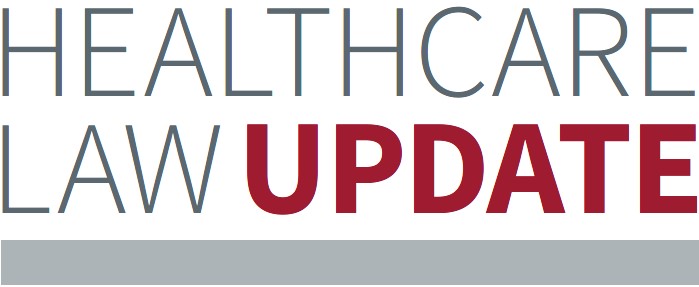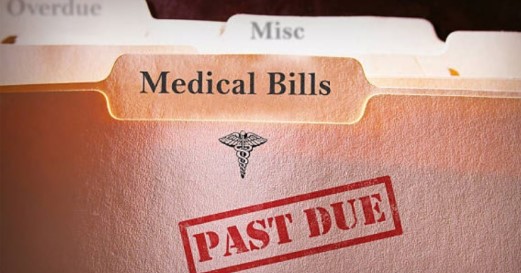


As of June 1, 2025, New Jersey employers are required to disclose compensation details when advertising new job openings and notifying employees of internal promotional opportunities. The New Jersey Pay Transparency Act aims to promote pay equity. The law applies to employers (defined broadly to include any persons, companies, corporations, firms, labor organizations, associations, government entities, and municipalities) that have ten or more employees working over 20 calendar weeks and conduct business, employ workers, or accept job applications in New Jersey. Under the law, employers must include information on hourly wages, salaries, or pay ranges, along with a general description of benefits, in all job postings. This applies to both external job openings and internal transfers or promotions. Employers retain flexibility to make upward adjustments to compensation during final salary negotiations when making an official offer. Additionally, employers must maintain records of all job postings, including details about pay ranges and benefits.
For more information, contact:
John D. Fanburg, Chair | 973.403.3107 | jfanburg@bracheichler.com
Edward Hilzenrath | 973.403.3114 | ehilzenrath@bracheichler.com
Rebecca T. Falk | 973.364.8393 | rfalk@bracheichler.com
The Louisa Carman Medical Debt Relief Act prohibits medical creditors and debt collectors from reporting medical debt to consumer reporting agencies (e.g. Experian, TransUnion) for healthcare services provided on or after July 22, 2024. A medical creditor includes any healthcare provider such as a physician, ambulatory surgery center, or hospital to whom a patient owes a medical debt (i.e., debt arising from the receipt of healthcare services). Any attempt to collect medical debt must include a notice stating that it has not been reported to a consumer reporting agency and that any reported medical debt will be void.
Starting July 22, 2025, the New Jersey law will further prohibit medical creditors and medical debt collectors from (i) charging an interest rate on medical debt of more than 3% per year; (ii) garnishing the wages of a patient

with an annual income less than 600% of the federal poverty level; (iii) beginning collection actions until after an additional medical bill and notice of the collection action is sent to the patient at least 30 days before initiating a collection action; and (iv) beginning collection actions until 120 days after the first medical bill for medical debt was sent and the patient has been offered a “reasonable payment plan.” A “reasonable payment plan” is defined as a structured repayment arrangement that satisfies the following criteria: (i) monthly payment amounts set at a level that the patient can reasonably
afford or no more than 3% of a patient’s monthly income, if known; (ii) a duration that allows the patient to repay the debt in full within a reasonable timeframe (i.e., between 3 months and 5 years depending on the amount owed); (iii) the terms of the payment plan are documented in a written agreement provided to the patient; (iv) provisions for adjusting the payment amounts and duration in response to changes in the patient’s financial circumstances; (v) a grace period of at least 60 days for late payments; and (vi) charges an interest rate of not more than 3% per year.
For more information, contact:
Carol Grelecki | 973.403.3140 | cgrelecki@bracheichler.com
Edward J. Yun | 973.364.5229 | eyun@bracheichler.com
Vanessa Coleman | 973.364.5208 | vcoleman@bracheichler.com

On May 28, 2025, the United States Attorney’s Office for the District of New Jersey announced that five pharmacies located in Jersey City, Bayonne, and Elizabeth agreed to pay a total of $1,935,000 to resolve allegations that they violated the False Claims Act. It was alleged that the pharmacies knowingly billed federal health care programs,
specifically Medicare Part D and the New Jersey Medicaid Program, for medications that were never dispensed. According to the settlement agreements, inventory records revealed that the pharmacies had not purchased sufficient quantities of medications from wholesalers to support the volume of prescriptions they submitted for reimbursement. The individual settlement amounts ranged from approximately $101,000 to $1,000,000, depending on the period and extent of alleged misconduct.
For more information, contact:
Riza I. Dagli | 973.403.3103 | rdagli@bracheichler.com
Edward J. Yun | 973.364.5229 | eyun@bracheichler.com
Vanessa Coleman | 973.364.5208 | vcoleman@bracheichler.com

On April 22, 2025, New Jersey Governor Phil Murphy signed a new law that calls for the establishment of a Public Health Institute (PHI) in New Jersey. Under the new law, a nonprofit entity will be formed to serve as the PHI for the purpose of promoting public health initiatives, including coordinating local, state, and national agencies, providing support to public and private health agencies, and developing new programs designed to improve public health outcomes. Additionally, the new law requires the creation of a new “Public Health Institute Fund” to support the work of the PHI.
The creation of the PHI is, at least in part, a response to New Jersey’s experience during the COVID-19 pandemic. According to State Senator Joseph Vitale, a primary sponsor of the new law, the PHI will streamline coordination among healthcare services and community members, allowing the State to combat longstanding disparities in the provision of healthcare services more efficiently.
For more information, contact:
Joseph M. Gorrell | 973.403.3112 | jgorrell@bracheichler.com
Richard Robins | 973.447.9663 | rrobins@bracheichler.com
Andrew Kuder | 973.403.3141 | akuder@bracheichler.com
On May 22, 2025, the Departments of Labor, Health and Human Services, and the Treasury (the Departments) issued a request for information (RFI) regarding improvements to transparency in prescription drug pricing. Specifically, the Departments solicited input
about modifying the prescription drug machine-readable file disclosure requirements in the Transparency in Coverage final rules to enhance prescription drug price transparency. The Transparency in Coverage final rules require group health plans and health insurance issuers offering group or individual health insurance coverage to make certain information relating to prescription drug expenditures available to the public. Stakeholder comments to this RFI must be received by July 2, 2025. The Departments also issued an updated FAQ effective May 22, 2025, directed to health plans and health insurance issuers regarding deadlines to enhance file formats so that pricing information is easier for consumers to read and understand. Directives in this guidance include decreasing duplicative data and reducing unnecessary fields to achieve greater price transparency for consumers.
Additionally, the Centers for Medicare & Medicaid Services issued an RFI regarding transparent pricing data by hospitals. Stakeholder comments to this RFI must be received by July 21, 2025. In addition, effective as of May 22, 2025, CMS issued updated guidance regarding hospital price transparency. The CMS guidance includes requirements for hospitals to disclose actual prices of items and services, not estimates.
For more information, contact:
Caroline Patterson | 973.364.5233 | cpatterson@bracheichler.com
Edward J. Yun | 973.364.5229 | eyun@bracheichler.com
Cynthia J. Liba | 973.403.3106 | cliba@bracheichler.com
On May 29, 2025, the Centers for Medicare and Medicaid Services (CMS) issued revised guidance rescinding its July 11, 2022 guidance (Ref. QSO-22-22-Hospitals) clarifying how the Emergency Medical Treatment and Labor Act of 1965 (EMTALA) should be interpreted in the wake of state policy and legislative responses to the landmark Supreme Court decision, Dobbs v. Jackson Women’s Health Organization (2022), which overturned the Supreme Court ruling in Roe v. Wade (1973). Under EMTALA, individuals seeking medical care at a Medicare-funded hospital must be screened by qualified medical personnel to determine the presence of a medical condition. If an emergency medical condition is identified, the patient must be provided with stabilizing treatment before the patient is discharged or transferred to another facility. EMTALA applies regardless of the individual’s ability to pay.
Pursuant to the July 11, 2022 guidance, which was issued during the Biden Administration following the Dobbs decision, if a hospital emergency department physician believes that an abortion is the stabilizing treatment that is necessary to resolve a patient’s emergency medical condition, the physician is legally required to provide that treatment, regardless of state law. In rescinding the July 11, 2022 guidance, CMS affirmed that it “will continue to enforce EMTALA, which protects all individuals who present to a hospital emergency department seeking examination or treatment, including for identified emergency medical conditions that place the health of a pregnant woman or her unborn child in serious jeopardy.”
For more information, contact:
Keith J. Roberts | 973.364.5201 | kroberts@bracheichler.com
Shannon Carroll | 973.403.3126 | scarroll@bracheichler.com
Paul DeMartino, Jr. | 973.364.5228 | pdemartino@bracheichler.com
In an Executive Order issued on May 12, 2025, President Trump directed federal agencies to implement policies to tie prescription drug prices to international price targets and to facilitate direct to consumer sales of prescription drugs at the most favored nation (MFN) price. The Executive Order instructed the Secretary of the Department of Health and Human Services to communicate MFN price targets to drug manufacturers within 30 days after the publication of the Executive Order.
The issuance of the Executive Order comes on the heels of President Trump’s repeated criticism of the high cost of brand-name prescription drugs in the United States as compared to other developed countries. The Executive Order is intended to ensure that payers in the United States do not pay more for prescription drugs than payers in other developed nations, and that the United States does not subsidize global research and development costs or allow manufacturers to offer lower prices in other countries. Further, the Executive Order calls on various federal agencies to take aggressive action to identify and address practices by drug manufacturers that contribute to high drug prices in the United States.
For more information, contact:
Lani M. Dornfeld, CHPC | 973.403.3136 | ldornfeld@bracheichler.com
Jonathan J. Walzman | 973.403.3120 | jwalzman@bracheichler.com
Paul DeMartino, Jr. | 973.364.5228 | pdemartino@bracheichler.com

Senate Bill 4422, introduced in the New Jersey Senate on May 19, 2025, would require New Jersey insurance carriers to accept the universal physician application for provider credentialing if the provider demonstrates that they are licensed in good standing by the New Jersey Board of Medical Examiners. The Bill would also apply to renew a credential.
Senate Bill 4450, introduced in the New Jersey Senate on May 19, 2025, would require practices and health care facilities to notify patients when a State-licensed physician’s license is revoked or suspended. The notice could be electronic or by mail, and would be required to be provided to patients within ten business days of the suspension or revocation.
Senate Bill 4457, introduced in the New Jersey Senate on May 19, 2025, would amend statutory law to change the title of “physician assistant” to “physician associate.” The bill follows the change from “physician assistant” to “physician associate” by the American Academy of Physician Associates (AAPA), the national organization representing physician associates.
Senate Bill 4430, introduced in the New Jersey Senate on
May 19, 2025, would require hospitals to notify the family of any patient who is released from the hospital following a drug overdose if certain criteria are met. Specifically, hospitals would be required to attempt to contact a family member of the patient if the hospital possesses contact information for a family member and if informing a family member of the patient’s drug overdose and hospital release is consistent with federal and State laws, including federal and State privacy laws. When the conditions are met, hospitals would have 72 hours from when the patient is released to attempt such contact.
Senate Bill 4358, introduced in the New Jersey Senate on May 12, 2025, would allow providers who have an established provider-patient relationship to use remote patient monitoring for pregnant patients who are unable to receive in-person services at a doctor’s office or facility. Remote patient monitoring would include using digital technology to collect clinical patient data such as weight, blood pressure, pulse oximetry, respiratory flow rate, musculoskeletal system status, blood glucose levels, and other patient-generated physiological data. The data would be electronically transmitted securely to health care providers for analysis, interpretation, and to make recommendations to, and manage the treatment of, the patients.
Senate Bill S4251, introduced on March 3, 2025, would establish an exit procedure for when a “health care facility network,” defined broadly as a single facility or group of facilities public or private that primarily provides health services such as diagnosis, treatment, and care, including hospitals, public health centers, clinics, nursing homes, rehabilitation centers, home health agencies, but excluding independent laboratories and outpatient offices of health professionals, is removed from or voluntarily leaves a health insurance carrier’s provider network. Prior to any removal or departure, both the carrier and the facility would be required to provide electronic notice of the potential termination to each other, the Department of Banking and Insurance, and to all subscribers and patients in the county or counties where the facility is located, informing them that negotiations are underway and explaining the potential consequences if those
negotiations fail. Additionally, the carrier would be required to continue to cover claims from the facility for at least 15 business days following notice.
If there is no agreement by the end of 15 business days, the bill would trigger a 30-day special enrollment period for individuals enrolled in small employer or individual health benefits plans who reside in the impacted counties. The bill would allow these individuals to change their health plan, including through the state-based exchange or by enrolling in a spouse’s employer-based plan. The carrier would be required to provide coverage of claims from the facility for the entirety of the special enrollment period.
Senate Bill S4418, introduced on May 19, 2025, would provide for the creation of a special enrollment period triggered when a provider is set to leave a carrier’s network. Under the bill, this special enrollment period would begin 60 days before the expiration of the contract between the provider and the carrier. The carrier would be required to notify insured individuals of the upcoming enrollment period in a form and manner prescribed by the Department of Banking and Insurance.
Assembly Bill 5273, an amended version of which was introduced in the New Jersey Assembly on June 6, 2025, would establish a framework for licensing graduate physicians who have completed medical school but have not yet finished residency. If enacted, the bill would allow graduate physicians who meet certain qualifications to practice medicine in New Jersey, particularly in medically underserved areas, under the supervision of a collaborating physician. A graduate physician’s scope of practice would be limited to primary care services. Graduate physicians would have the authority to prescribe controlled substances and authorize medical cannabis, subject to certain restrictions. Insurers, including Medicaid and other State health insurance programs, would be required to reimburse graduate physicians for services on par with mid-level providers, such as physician assistants.
For more information, contact:
John D. Fanburg, Chair | 973.403.3107 | jfanburg@bracheichler.com
Edward Hilzenrath | 973.403.3114 | ehilzenrath@bracheichler.com
Rebecca T. Falk | 973.364.8393 | rfalk@bracheichler.com
The U.S. Department of Health & Human Services, Office for Civil Rights (OCR) recently announced the settlement of its 13th ransomware enforcement action and 9th enforcement action in its Risk Analysis Initiative. The settlement resolves an OCR investigation concerning a ransomware breach of a billing and collection service provider (a HIPAA business associate of over 70 HIPAA covered entities) that affected 585,621 individuals.
OCR’s investigation revealed that the service provider was the victim of a ransomware attack whereby an unknown actor gained access to electronic protected health information (ePHI) residing on the service provider’s network servers and encrypted the network servers. OCR’s sole negative finding was that the service provider “failed to conduct an accurate and thorough risk analysis to determine the potential risks and vulnerabilities to the ePHI that it holds.” Under the Resolution Agreement entered into between the parties, the service provider agreed to pay a civil penalty of $75,000 and implement a corrective action plan OCR will monitor for a period of two years.
In its announcement of the settlement, OCR took the opportunity to recommend to covered entities and business associates that they take steps to mitigate or prevent cyber-threats, including:
• Identify where ePHI is located in the organization, including how ePHI enters, flows through, and leaves the organization’s information systems.
• Integrate risk analysis and risk management into the organization’s business processes.
• Ensure that audit controls are in place to record and examine information system activity.
• Implement regular reviews of information system activity.
• Utilize mechanisms to authenticate information to ensure only authorized users are accessing ePHI.
• Encrypt ePHI in transit and at rest to guard against unauthorized access to ePHI when appropriate.
• Incorporate lessons learned from incidents into the organization’s overall security management process.
• Provide workforce members with regular HIPAA training that is specific to the organization and to the workforce members’ respective job duties.
For more information or assistance with your organization’s privacy and security program, contact:
Lani M. Dornfeld, CHPC | 973.403.3136 | ldornfeld@bracheichler.com
Get to know the faces and stories of the people behind the articles in each issue. This month, we invite you to meet Member Edward Yun and Counsel Cynthia Liba.
In your opinion, what is the most pressing legal issue currently facing the healthcare industry?
One of the most pressing legal issues facing the healthcare industry today is the growing integration of Artificial Intelligence (AI) in healthcare. AI has enormous potential to advance healthcare technologies, devices, and drugs, accelerate complex data analyses, and assist in clinical decision-making and the delivery of care – ultimately expanding access, creating efficiencies, and reducing errors. However, stakeholders will need to resolve not only public policy considerations on the proper use and limits of AI, but also the myriad of professional, ethical, legal, reimbursement, liability, and other issues that AI in healthcare will undoubtedly raise.
What personal qualities or skills do you think are most important for a healthcare attorney to cultivate, both professionally and personally?
There are many important personal qualities that a healthcare attorney should cultivate. I think perhaps the most
important is integrity and trust – whether in dealings with a client, an adversary, or a governmental official. Then, there is everything else, including: Communication – especially listening to what is being said or written (or not being said or written). Adaptability – because the needs and concerns of clients, like that of the healthcare industry, are constantly evolving. Perseverance – to have the drive to perfect that legal brief or agreement, or to try find a way to legally do what seemed impossible.
In your opinion, what is the most pressing legal issue currently facing the healthcare industry?
A pressing legal issue facing the healthcare industry is maintenance of data privacy and security. This is an especially important issue in light of the proliferation of artificial intelligence. AI holds the potential to greatly enhance patient care. However, AI must be used in a manner that does not compromise data privacy and security as a breach of protected health information may result in fines, lawsuits, emotional distress for patients, and harm to a provider’s reputation.
What personal qualities or skills do you think are most important for a healthcare attorney to cultivate, both professionally and personally?
As a result of the rapidly evolving healthcare landscape, a successful healthcare attorney must continue to evolve and stay up to date with new laws and regulations. The ability to approach complex laws and regulations with an analytical mindset is also crucial.

On June 7, Healthcare Law Counsel Tracy Miller presented at a CLE event entitled “AI Evolution in Healthcare: Navigating Legal and Compliance Challenges in a Rapidly Evolving Landscape” hosted by the New York State Bar Association Health Law Section.
On June 5, Brach Eichler’s Healthcare Law Practice was once again recognized among New Jersey’s top healthcare law practices, ranked top tier (Band 1) by Chambers USA. Additionally, Chambers USA recognized the following individual Healthcare members of the Firm: John D. Fanburg, with the highest Band 1 recognition in NJ; Joseph Gorrell, Senior Statespeople, and Carol Grelecki, Band 2.
On May 30, Healthcare Member Lani Dornfeld and Labor & Employment Member Jay Sabin created and posted an informative video on YouTube entitled “AI in the Workplace – Why You Need To Know How Your Staff Is Already Using AI”.

Attorney Advertising: This publication is designed to provide Brach Eichler LLC clients and
contacts with information they can use to more effectively manage their businesses. The contents
of this publication are for informational purposes only. Neither this publication nor the lawyers who
authored it are rendering legal or other professional advice or opinions on specific facts or matters.
Brach Eichler LLC assumes no liability in connection with the use of this publication.

Riza I. Dagli | 973.403.3103 | rdagli@bracheichler.com
Lani M. Dornfeld | 973.403.3136 | ldornfeld@bracheichler.com
John D. Fanburg, Chair | 973.403.3107 | jfanburg@bracheichler.com
Joseph A. Ferino | 973.364.8351 | jferino@bracheichler.com
Joseph M. Gorrell | 973.403.3112 | jgorrell@bracheichler.com
Carol Grelecki | 973.403.3140 | cgrelecki@bracheichler.com
Caroline Patterson | 973.364.5233 | cpatterson@bracheichler.com
Keith J. Roberts | 973.364.5201 | kroberts@bracheichler.com
Richard B. Robins | 973.447.9663 | rrobins@bracheichler.com
Jonathan J. Walzman | 973.403.3120 | jwalzman@bracheichler.com
Edward J. Yun | 973.364.5229 | eyun@bracheichler.com
Edward Ellersick | 973.364.5205 | eellersick@bracheichler.com
Debra W. Levine | 973.403.3142 | dlevine@bracheichler.com
Erika R. Marshall | 973.364.5236 | emarshall@bracheichler.com
Tracy Miller | 973.403.3102 | tmiller@bracheichler.com
Rebecca T. Falk | 973.364.8393 | rfalk@bracheichler.com
Roseland, NJ | New York, NY | West Palm Beach, FL | www.bracheichler.com | 973.228.5700





